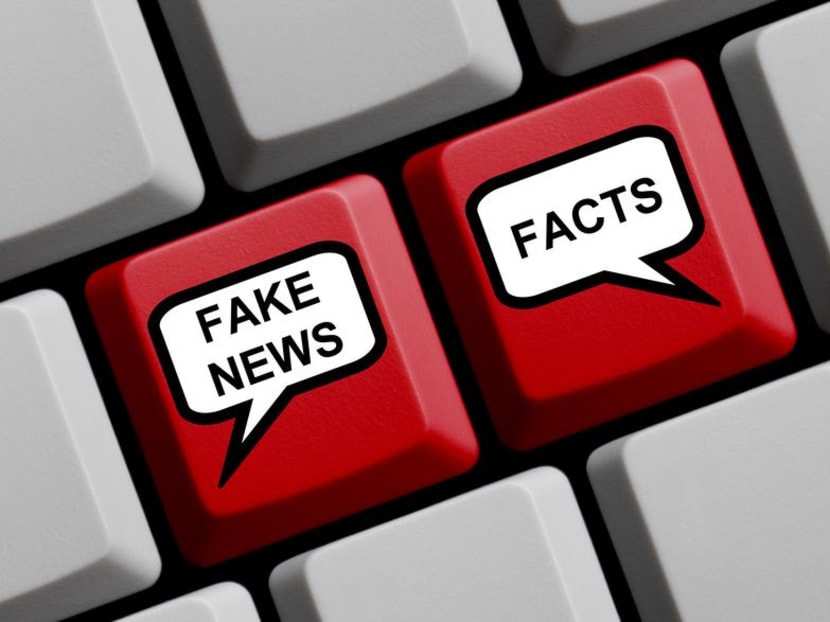Fact or opinion? Shanmugam explains difference with 5 examples
SINGAPORE — Law and Home Affairs Minister K Shanmugam has laid out some examples in Parliament to counter criticism that the sweeping fake news laws might stifle free speech.

Law and Home Affairs Minister K Shanmugam laid out five examples to distinguish what the proposed fake news laws will cover and what it will not cover.
SINGAPORE — Law and Home Affairs Minister K Shanmugam on Tuesday (May 7) laid out examples of what constitutes fake news to address criticism that the sweeping Protection from Online Falsehoods and Manipulation Bill might stifle free speech.
Given the concerns that the proposed legislation could deter people from expressing their views, he had earlier explained that the laws target only false statements that distort facts and not opinions, criticisms, satire or parody.
In a speech in Parliament on Tuesday (May 7), he used five examples to illustrate the difference between a fact and an opinion:
EXAMPLE 1
A professor of law states that the death penalty in Singapore does not deter crime and substantiates his claim with several studies citing real data.
This is a statement of opinion as it is a conclusion that is drawn from studies, and is not covered by the Bill. But if the studies are found to be non-existent or based on non-existent data, then it is a false statement of fact.
EXAMPLE 2
A person states that the Government is practising “double standards” by having two different permit regimes to govern public activist events on political issues and a public meet-up by an influencer.
This is a statement of opinion, and is not covered by the Bill.
But if the person says or implies that the same permit rules govern both kinds of events and double standards were applied for the granting of permits under the same rules, then it is a false statement of fact, and can be covered by the Bill.
EXAMPLE 3
An economist states that home ownership in Singapore is only 9 per cent and explains that the definition used of home ownership excludes any lease regardless of length of lease.
This is a statement of opinion as it is a conclusion drawn from a certain methodology and is not covered by the Bill.
But if the economist misrepresents the actual number of persons who own freehold property in Singapore, then it is a false statement of fact, and can be covered by the Bill.
EXAMPLE 4
A writer publishes an article online stating that the social welfare system in Singapore has gaps. This article draws from interviews with government officials and social workers.
This is not covered by the Bill and the Government can disagree with the conclusion drawn by the writer.
But if the person quotes a social worker who said that welfare assistance had been denied to a needy elder and that information was found to be untrue or manufactured, then it is a false statement of fact. If the public interest is affected, it may come under the Bill.
EXAMPLE 5
Mr Shanmugam also brought up an example based on the recent case surrounding National University of Singapore undergraduate Monica Baey who was filmed in the shower by fellow student Nicholas Lim.
Some had made allegations that Mr Lim was not prosecuted because his parents were influential people, Mr Shanmugam said. The police later said this was untrue and revealed his parents’ occupations after seeking their consent.








